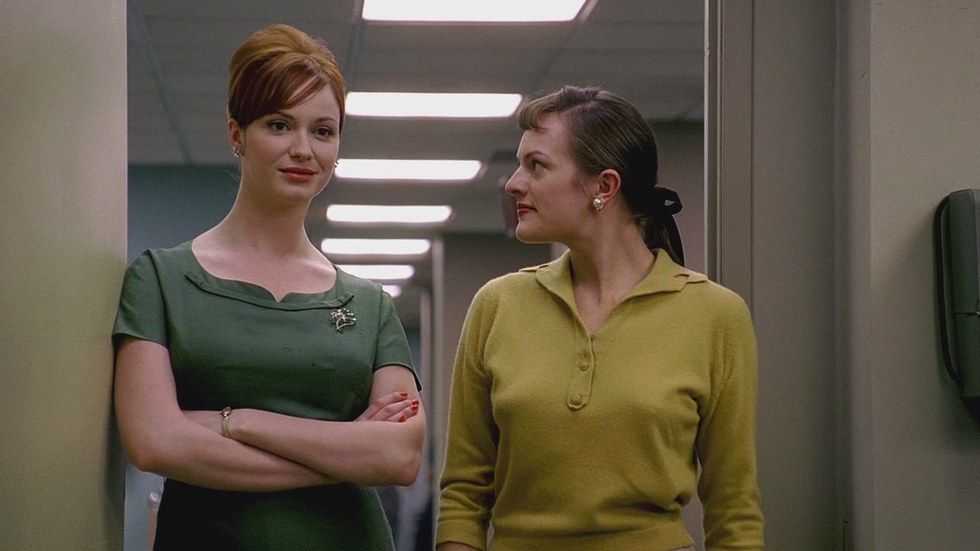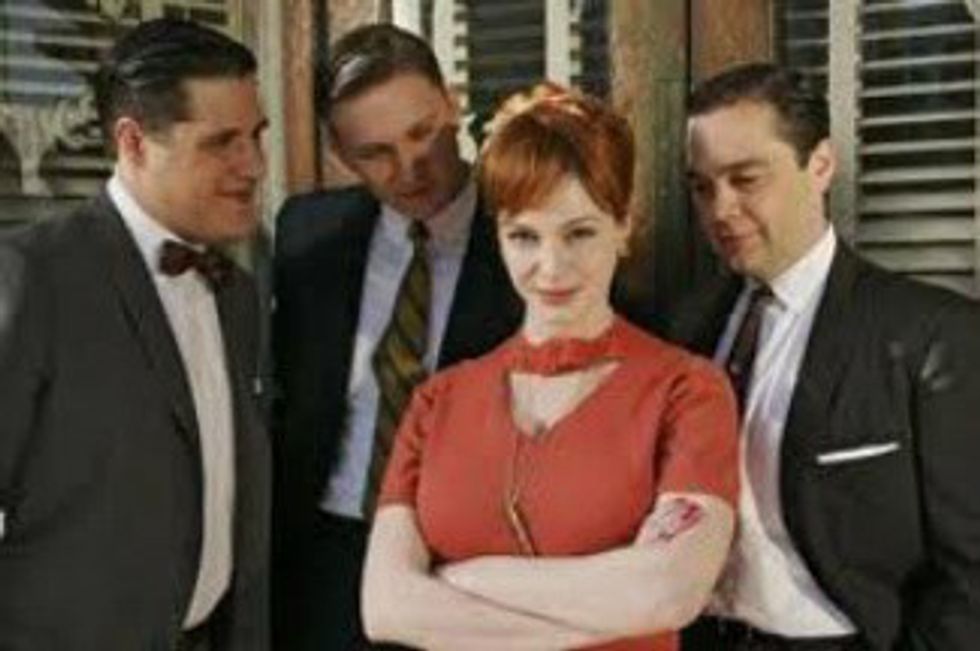Though there are many binge-worthy options to choose from, the best and most validating television series, in my opinion, is the "positively Shakespearian", 1960's period piece: Mad Men. In this social-minded narrative, many themes are exhibited in the attempt to portray a society of heavy-drinking, baby-booming, and sex-discrimination. Through these themes, many lessons can be drawn, which I have applied to my own outlook on life. With that being said, below are 11 lessons I learned from Mad Men that have made me, and every other viewer, a better person.
1. Confidence, without humility, is the most unattractive attribute.
Someone once said to me that "confidence, with humility, is the most attractive attribute." After hearing these wise words, I took note of the quite opposite behavior which was depicted in "Mad Men." Obviously, the character which most evidently embodies this idea, is Don Draper. Early on in the series, we see a wild culture that is less aware of gender discrimination, giving room for more of a bravado in the adman archetype. Draper identifies with this bravado and with that comes multiple episodes of him using a gross amount of arrogance toward female secretaries in order to have work done for him and give no thanks in return.
2. Don't Be Like Pete Campbell.
In almost every series that fixates on a striving business, there is a nosy backscratcher striving to be at the top--even if it that means just getting one up on the guy ahead of him in the coffee line. In "Mad Men," Pete Campbell is that guy. He spends most of the series complaining about how he has not become a partner, and hasn't been promoted to the Head of Accounts, but when he finally is promoted, he spends his time complaining about how he does more work than the rest of the partners. So, don't be like Pete Campbell and do your work without feeling the need to let everyone know how good you think it is.
3. Never underestimate the power of a working woman.
Although I don't want to spoil anything for non-viewers, it's safe to say that the women of this show ultimately become the "supreme-beings". Sexism is by far one of the larger themes of the series. As a matter of fact, when I first began watching the series, with my businesswoman mother, she was unsure whether she could finish because of how poorly women were treated. However since the series is, in fact, a social commentary on life in the 1950s-60s, the theme of gender plays a significant role. If this were Rotten Tomatoes, I'd tell you how the characters Peggy and Joan end up, but since that isn't the case, I'll leave you with this concluding clue: sometimes silence can be beneficial, in the long run.
4. Don't be lewd toward coworkers, or anyone really.
This lesson goes along with the one above, implying that sexism and male masculinity are not appropriate tools of leverage in the workplace, or anywhere else. In today's world, some of the incidents in "Mad Men" would have never been allowed to happen. Among these incidents are many dominating acts of male superiority, where they view and treat the women of the office as mere objects, akin to the staplers on the desks, and incredibly lewd and demeaning commentary.
5. Know your worth.
Out of all the characters in this series, Peggy, the former secretary and then copywriter/partner, exhibits the largest amount of self-worth. What I mean by that is that Peggy never undermines her potential even if it means living through the apparent "humor" of having a woman be a copywriter. It's Peggy who ends up on top.
6. Don't attach yourself to materialistic things.
The irony of materialism is exhibited through the characterization of all the admen and their families. Most everyone in the show falls for this idea that there is beauty in what can be attained. At times, there seems to be more of a desire for a new sports car than stability for their rollercoaster families.
7. Sometimes backwards is the only way to go.
Especially in the characterization of Don Draper, there is an apparent necessity to move forward, whatever the cost may be. Given Don Draper's background of not having a penny to his name and living in a whorehouse, the adman embodies the idea that if the next move isn't forward, than it's not worth the time. This is also embodied in Draper's style of work, where he drinks and drinks and drinks until he magically receives the couple of words to tie an ad together. And what does he receive from this? Long work hours and another risk on yet another tenuous client.
8. Embrace change.
This lesson is more prominent than any other theme and/or lesson in the series. In this series, change happens between genders, decades, fashion trends, politics, and the characters' lifestyles. Change is arguably the foundation of all themes in "Mad Men," and it is also arguably the theme that most viewers embrace in their own lives.
9. If you dress nicely, you are more likely to get the job.
One unspoken greatness about the show is their avant-garde sense of style. The designers for the series have perfectly imitated the 50s' and 60s' fashion fads. Within this fashionable reinvention--that is slowly reincarnating itself in the real world--is a sense of guaranty. Not only does it sell the viewer that the setting is what it says it is, but it also sells the viewer that the character knows what he or she is talking about. In all of the sales pitches and sessions for strategy, the appearance and outfit of each character speaks louder than what the character is actually saying.10. If you don't like what is being said, change the conversation.
These are some of Don Draper's wiser words. Although it comes from a man that says everything as if it was written in stone, it is advice that one can use everyday. This is the advice he gave Peggy at a late night, impromptu meeting where she was discouraged about her stance in the business. Draper implies that if you don't like the facts they provide, then provide some of your own. Give them something to take their eye off the old, so that they put it on the new.
11. Don't always look for the next best option.
If you are always looking for the next step up, then you might trip on the one you are currently standing on. This is seen through the acquisitions of advertising agencies and how Sterling-Cooper (the home company) is given many different names under many different owners, when, in the end, Sterling-Cooper isn't on the door and neither is any of the other founding father's names. So don't always look for the next best option. Be content with where you are, and fight to keep it that way.
































